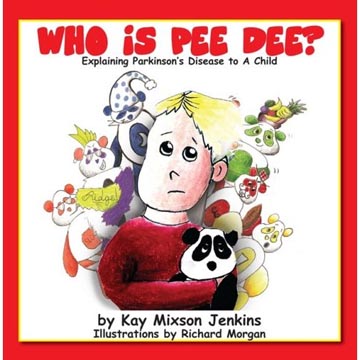Recently, scientists at the Weill Cornell Medical School were able to recreate the symptoms of Parkinson’s disease in mice, leading some to believe that a breakthrough in treating the ailment could be just around the corner.
According to a study in the journal Nature Neuroscience, the research involved creating an animal model of Parkinson’s in mice so that scientists can focus on preventing the progression of the disease rather than just on treating its symptoms.
“This research is a huge step for the Parkinson’s community,†says Kay Mixson Jenkins, author of Who Is Pee Dee? Explaining Parkinson’s Disease to a Child. “With efforts like these, Parkinson’s patients have hope that funding and time are going into meaningful steps towards an eventual cure.â€
Ms. Jenkins, founder of the non-profit Parkinson’s in the Park, was diagnosed with the disease when she was just thirty-four. She wrote Who Is Pee Dee? for kids who may be asking, “What is Parkinson’s disease?†or, “What are Parkinson’s disease symptoms?â€
The book follows a young boy named Colt as he tries to deal with his mother’s illness. It’s the kind of story Ms. Jenkins hopes will be made obsolete by the research being done with mice at Weill Cornell.
“I hope that researchers continue to get funding both private and public,†says Ms. Jenkins, whose book includes a discussion of some of the following symptoms:
• The constant fatigue created by the struggle to control body movement.
• The loss of coordination when doing even simple tasks
• The anger and resentment that can come from feeling overwhelmed
For more information, contact the author directly via kmj@ParkinsonsInThePark.org.
(Who Is Pee Dee? Explaining Parkinson’s Disease to a Child by Kay Mixson Jenkins; illustrated by Richard Morgan; ISBN: 978-0-9819129-0-5; $12.95; 33 pages; 8†x 8â€; hardcover; UCB, Inc.)
Via EPR Network
More Healthcare press releases

